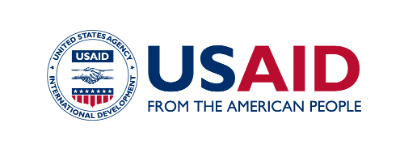News > Blog
Bridging the Digital Divide for Rural Youth in Sri Lanka with New IT Center
Published 09/13/2024 by Global Communities

By Rebecca Jayatissa
Perched on a hill 13 kilometers away from Deniyaya town in Sri Lanka, MR/Ensalwatta Tamil Vidyalaya is a school where the challenges of accessing education are palpable. The narrow, rough pathway leading to the school barely accommodates vehicles, making the journey difficult. Students travel from distant areas to attend classes, many of them walking up to 6 kilometers, while others depend on a single bus or lorry that only operates in the morning and afternoon. Some students even start their journey around 5 a.m., using torch lights to guide their way through challenging terrain.
The high cost of travel is a significant burden for parents, who are predominantly daily wage earners and plantation workers. As a result, many families can only afford to send one child to school at a time, leading to low attendance rates. The barriers to education for these children extend to lack of essential resources such as skilled teachers and proper school facilities. The inaccessibility of adequate learning tools and educational opportunities has long been a challenge, leaving students without the means to fully engage in their studies or realize their potential. Despite these difficulties, both the students and their parents show remarkable persistence and determination in pursuing education, understanding the value it holds for their future.

Recognizing these challenges, the Social Cohesion and Reconciliation (SCORE) Activity, funded by the United States Agency for International Development (USAID) and implemented by Global Communities, has focused on empowering youth across Sri Lanka, particularly in marginalized communities, with practical resources and skills to enhance their participation in civic activities and improve their economic opportunities. To date, this has included vocational training, leadership development and digital literacy programs.
On August 28, the opening of an Information Technology (IT) Center at MR/Ensalwatta Tamil Vidyalaya marked a significant step in bridging the digital divide that has deprived these students of access to essential technology and skills. Established in collaboration with the Organization for Sustainable Community Development (OSCOD), the IT Center is now equipped with computers, tables and chairs, transforming a once-basic classroom into an IT learning environment where students and other youths in the area can develop vital digital skills.
With SCORE support, 90 students from grades 8 to 11 are currently enrolled in a three-month IT course, learning both the theory and practice of information technology. For many students, this marks their first experience with computers, a significant milestone in their educational journey. Additionally, the IT Center offers free opportunities for local youth who have completed school but lack the skills needed for employment, helping them bridge the gap to the workforce.


In addition to the IT Center, SCORE has also addressed the need for physical education by providing much-needed sports equipment to the school. This support is intended to enhance the students’ physical well-being, teamwork and leadership skills, contributing to their overall development.
At the opening ceremony, Ms. Subashini Weerasinghe, District Career Guidance Officer at the National Youth Services Council, spoke about the significance of this project in addressing the disparity between urban and rural schools in Sri Lanka.
“This is a powerful initiative that understands the needs of the population and fulfills them,” she said.
Mr. Udaya Kumar, the principal of MR/Ensalwatta Tamil Vidyalaya, also expressed deep gratitude, noting the transformative impact these resources will have on the students, many of whom come from the estate community and face significant challenges in accessing quality education. The estate community, or plantation community, has historically been marginalized, facing significant gaps in service delivery, such as limited access to quality education, health care and infrastructure. Due to residents’ isolation, they often lack opportunities for socio-economic advancement, which makes them particularly vulnerable to poverty and exclusion.
This IT initiative offers [our students] new opportunities to develop crucial skills in their own language.
Mr. Udaya Kumar, Principal, MR/Ensalwatta Tamil Vidyalaya
“Our students have made progress in their education despite the challenges they face,” he said. “This IT initiative offers them new opportunities to develop crucial skills in their own language. We are truly grateful to SCORE for making this possible.”
The opening of the IT center aligns with themes highlighted during International Youth Day 2024, which emphasized the role of digitalization in accelerating progress toward global goals, and International Literacy Day, which focused on “Promoting multilingual education: Literacy for mutual understanding and peace.” By equipping students with digital tools and resources, the center goes beyond technological literacy, creating opportunities for students to access diverse educational content in multiple languages. This fosters an environment of mutual understanding and inclusivity, key elements in building a peaceful society.
As SCORE continues its work across Sri Lanka, initiatives like this one in Deniyaya will play a crucial role in empowering and equipping the next generation of leaders, ensuring no student is left behind, regardless of their background or circumstances.

This success story is made possible by the generous support of the American people through the United States Agency for International Development (USAID). The contents are the responsibility of Global Communities and do not necessarily reflect the views of USAID or the United States Government.





